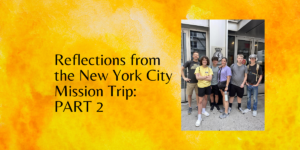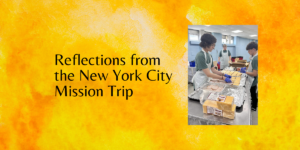Last Monday, Charlotte was stopped. Many people who seldom take time to allow compassion to outpace competition reset their clocks. Most hearts beat as one for several hours. Each second lingered in stillness. This was not merely another horrific news report. This was around the corner from where we live and work and learn.
As law enforcement officers served a warrant on a felon in Northeast Charlotte early Monday afternoon, eight officers were shot and four were murdered. Many lives were changed in those moments as the lives of four public servants were taken by violence: William Elliott (aged 44), Joshua Eyer (aged 38), Samuel Poloche (aged 42), and Thomas M. Weeks Jr. (aged 41). Evil crushed the lives of their families and friends.
Violence has become so prevalent in our daily experience that the boundaries of decency seem to be shifting. We often question whether our hopes for humanity are sustainable. We are seduced to substitute fear for faith and terror for trust. We are recruited by news stories to trade peaceful visions of the future for protective devices and security systems. Our car doors lock automatically as our wheels begin to turn. This violent world suggests that we chant in despair, “there is no hope; there is no peace.” We find ourselves asking, ‘what can we do?’
First, as we study Judeo-Christian history, we find numerous occasions when God’s people have been victims of violence and many times when God’s people have caused suffering. As followers of Jesus Christ, we should remember that he introduces us to discipleship by teaching us how to respond to misunderstanding, betrayal, abandonment, abuse, rejection, prejudice, and suffering. Jesus shows us the pathway of virtue (moral excellence and ethical goodness) in the face of violence. He was beaten, spat upon, crowned with thorns, nailed to a cross, and pierced with a spear as he was murdered on a cross. The history of the Jesus movement describes a tangled web of moments when people identifying themselves as followers of Jesus have been victimizers and victims. So, the first thing we can do is accept the reality that violence is part of the Christian story.
Second, we must learn how to translate violence from a disconnected intellectual acknowledgement into a call from God for us to embody active faith. We must continually learn to do justice with God, love kindness with God, and walk humbly with God. We must humbly ask, ‘what can we do?’ as we wrestle with challenging questions to address the details of violence. We can collaborate with others who confront causes of violence. We can provide safe space for people and groups to explore conversations of varying perspectives and opposing viewpoints. We can create coalitions bringing together secular initiatives and sacred organizations to be an incubator for new partnerships. We can take Jesus seriously when he commands us to love God, love one another, love our neighbors, and love our enemies. We can pray and meditate asking God to guide us in the way of Jesus who was a servant in a violent world. We can advocate for public policies and laws that create a more peaceful world even if it means we must occasionally be a burr under the saddle of complacency.
We can practice active faith in the spirit of Martin Luther King, Jr. who taught, “Violence is a descending spiral, begetting the very thing it seeks to destroy. Instead of diminishing evil, it multiplies it…Returning violence for violence, adding deeper darkness to a night already devoid of stars. Darkness cannot drive out darkness; only light can do that. Hate cannot drive out hate; only love can do that.” Amen and Amen. May it be so.









